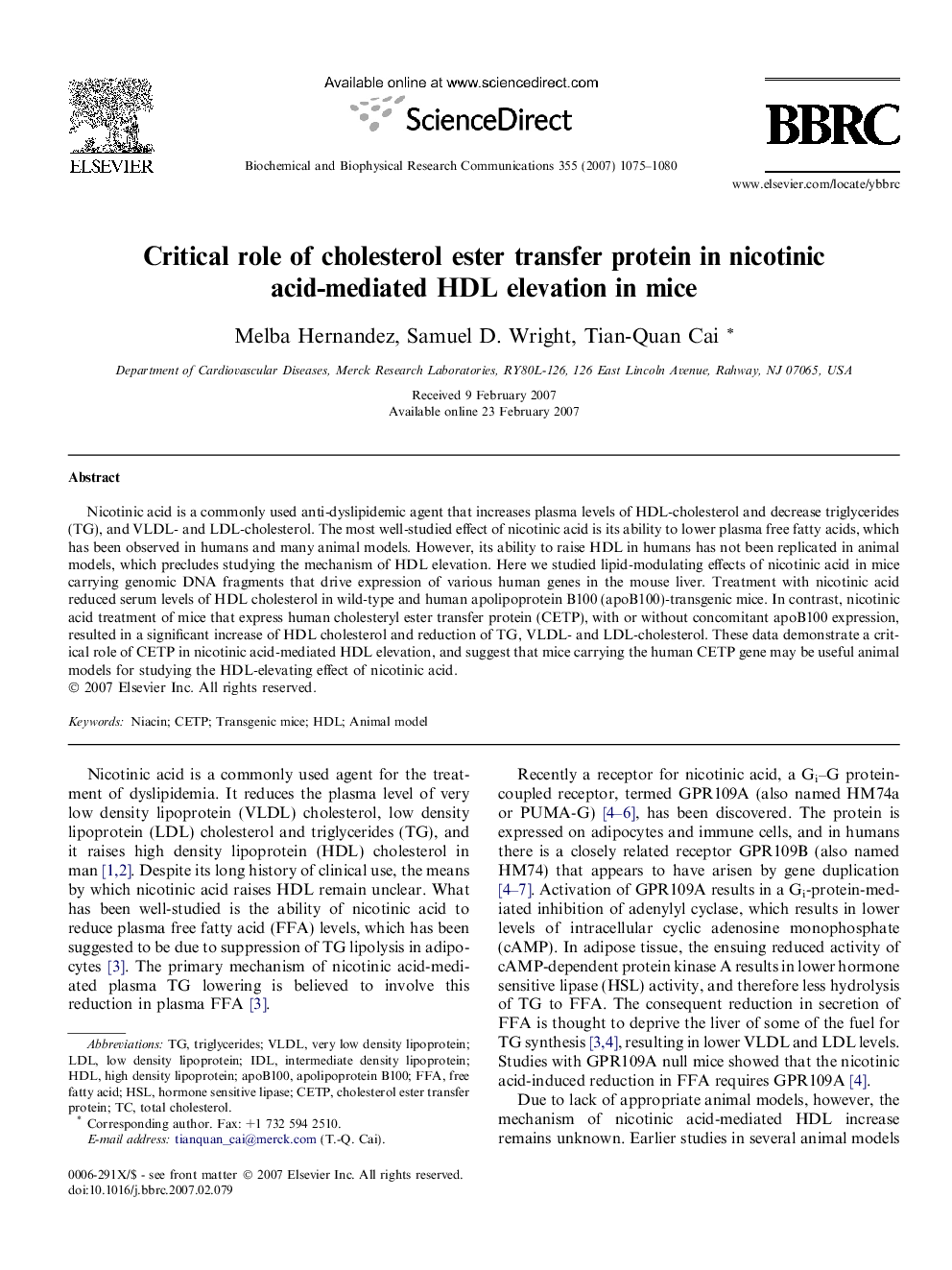| کد مقاله | کد نشریه | سال انتشار | مقاله انگلیسی | نسخه تمام متن |
|---|---|---|---|---|
| 1937929 | 1050728 | 2007 | 6 صفحه PDF | دانلود رایگان |

Nicotinic acid is a commonly used anti-dyslipidemic agent that increases plasma levels of HDL-cholesterol and decrease triglycerides (TG), and VLDL- and LDL-cholesterol. The most well-studied effect of nicotinic acid is its ability to lower plasma free fatty acids, which has been observed in humans and many animal models. However, its ability to raise HDL in humans has not been replicated in animal models, which precludes studying the mechanism of HDL elevation. Here we studied lipid-modulating effects of nicotinic acid in mice carrying genomic DNA fragments that drive expression of various human genes in the mouse liver. Treatment with nicotinic acid reduced serum levels of HDL cholesterol in wild-type and human apolipoprotein B100 (apoB100)-transgenic mice. In contrast, nicotinic acid treatment of mice that express human cholesteryl ester transfer protein (CETP), with or without concomitant apoB100 expression, resulted in a significant increase of HDL cholesterol and reduction of TG, VLDL- and LDL-cholesterol. These data demonstrate a critical role of CETP in nicotinic acid-mediated HDL elevation, and suggest that mice carrying the human CETP gene may be useful animal models for studying the HDL-elevating effect of nicotinic acid.
Journal: Biochemical and Biophysical Research Communications - Volume 355, Issue 4, 20 April 2007, Pages 1075–1080